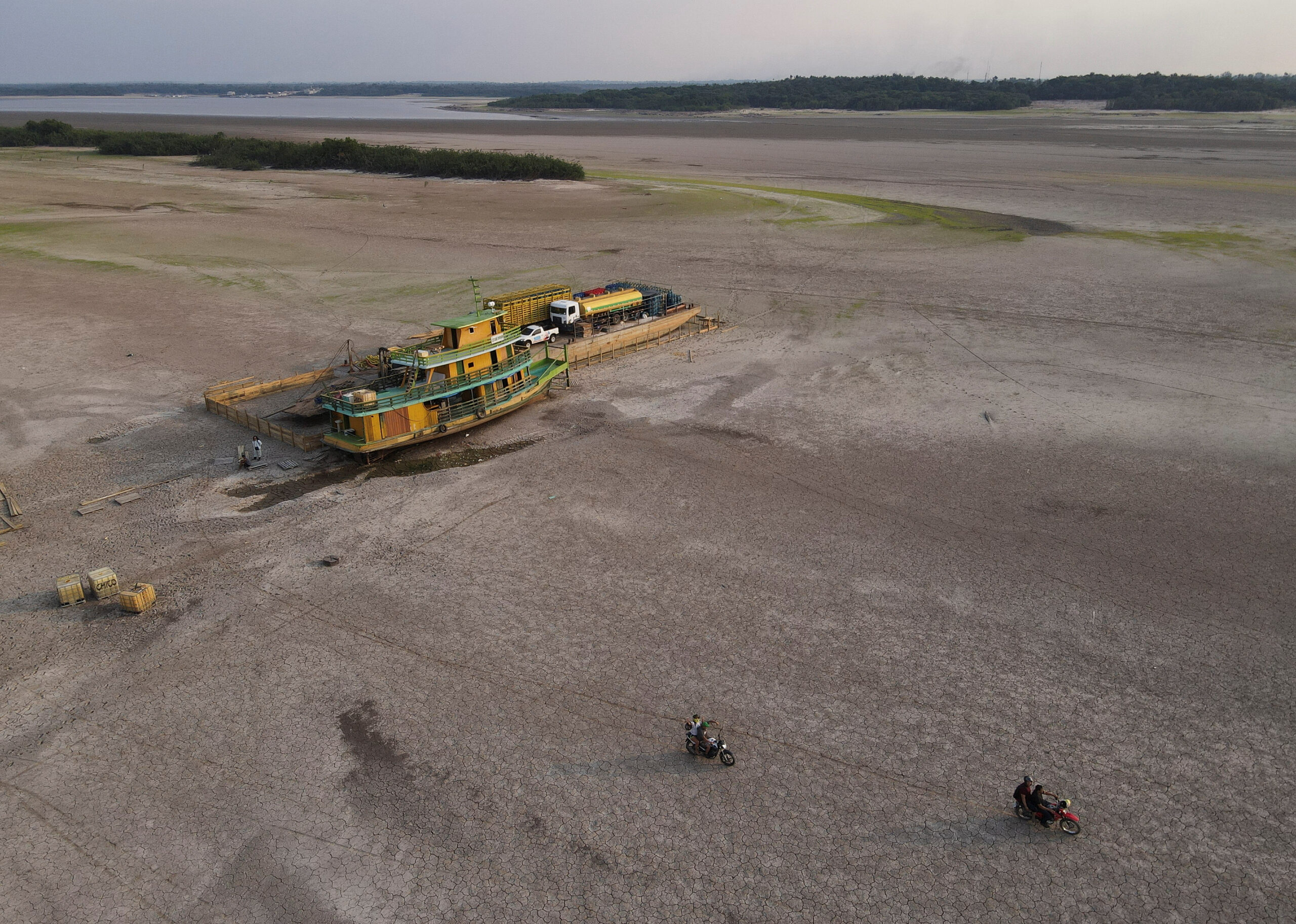Maritime Industry Legend Jim Lawrence Dies
Jim Lawrence, a towering figure in U.S. maritime industry and founder of the Connecticut Maritime Association (CMA) conference, passed away on Sunday after a short illness. Lawrence, who established and...


SAO PAULO, Oct 13 (Reuters) – A severe drought is disrupting barge traffic on the Tapajos river in the Amazon rainforest, shipping agencies told clients this week as Brazil enters the final months of 2023’s corn export season.
“Due to the dry season in the Amazon River, the current situation of barges’ navigation at the Tapajos River is getting restricted,” shipping agent Alphamar said in a note to clients, seen by Reuters. The barge convoys are smaller than usual and in some cases barges are reducing their loads by about 50% in order to safely navigate on some parts of the Tapajos, it added.
Cargonave, another agent, told clients the vessel MV Bravery, which was supposed to anchor at Santaremport to load corn in Para state, was affected.
“The improbability of loading due to lack of logistics to supply the ship is something real and relevant,” Cargonave wrote.
Read Also: Amazon Drought Stalls Shipping
According to Cargonave data, the MV Bravery was shown as due to arrive at Santarem on Oct 10. It will now berth on Oct. 25, when it is due to take almost 56,000 metric tons of corn to Iran.
Cargonave said the draft of private ports on the banks of the Tapajos river is at the lowest levels ever.
Amport, a group representing Amazonian private port operators including Cargill ABNO.UL and Louis Dreyfus Company LOUDR.UL, said barge convoys are reducing their loads by 50% on the Madeira river and 40% on the Tapajos, respectively.
Reducing loads is normal during the dry season but by a smaller proportion, Amport said.
The Madeira river’s mouth region remains 70 cm (27.56 inches) above levels reached during a historical drought in 2010, while the Tapajos is 25 cm (9.84 inches) above its 2010 minimums, Amport said.
Barge operator Hidrovias do Brasil HBSA3.SA acknowledged “a critical and rapidly changing scenario.” But the company reiterated its barges are running with about two-thirds of capacity on the Tapajos, which is enough to ensure navigability at this time.
The main seaports receiving grain cargos from inland rivers are Itacoatiara, Santarem and Barcarena, and they are operating normally, Amport said.
Despite the effects of the drought, Amport still projects moving around 25% more vegetable bulk in 2023 than in 2022 through Brazilian Amazonian river and seaports.
(Reporting by Ana Mano; editing by Jonathan Oatis)
(c) Copyright Thomson Reuters 2023.

Sign up for gCaptain’s newsletter and never miss an update

Subscribe to gCaptain Daily and stay informed with the latest global maritime and offshore news


Stay informed with the latest maritime and offshore news, delivered daily straight to your inbox
Essential news coupled with the finest maritime content sourced from across the globe.
Sign Up